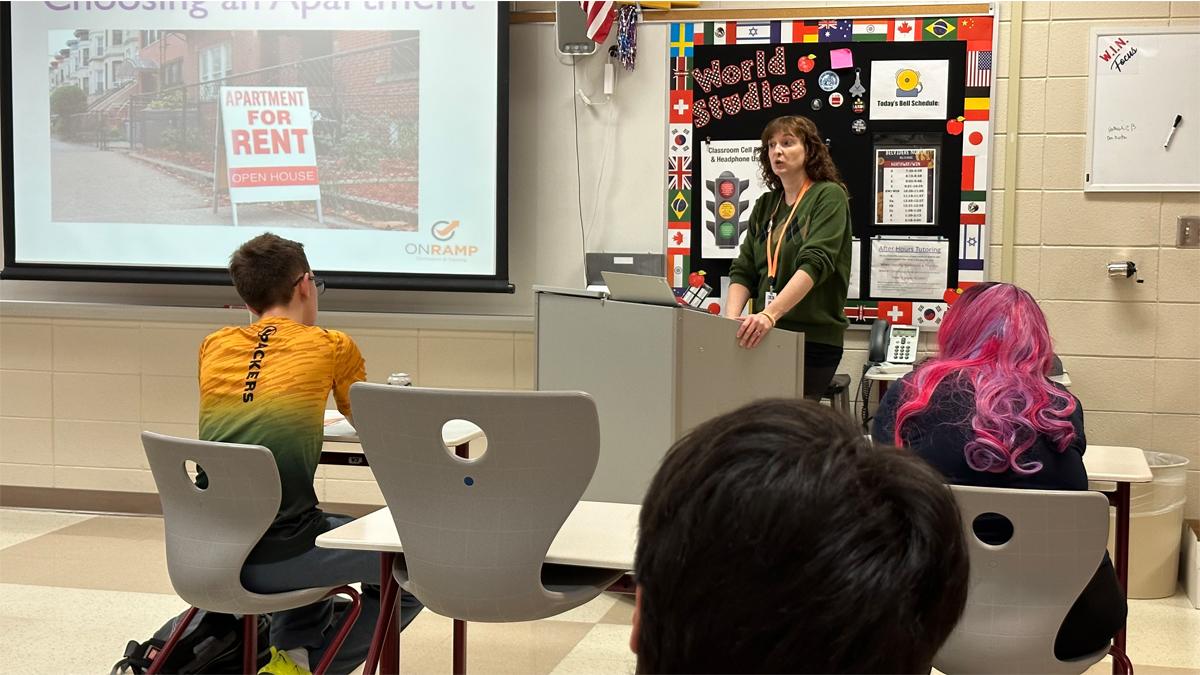This Nonprofit Is Helping To Build ‘A Truly Inclusive Employment Environment’
Illinois-based RAMP, with support from the U.S. Bank Foundation, offers a range of services to help people with disabilities find employment and live independently.

Originally published on U.S. Bank company blog
An Illinois high schooler, who we’ll call Michelle, struggles with anxiety and depression to such a degree she has trouble imagining a future for herself.
Michelle is one of a dozen or so participants in a program called Teens in Transition offered by the Regional Access Mobilization Project (RAMP), a nonprofit serving four counties in northwest Illinois, including DeKalb and Winnebago. The program aims to help teens and young adults with disabilities prepare for careers or post-secondary education, including mock job interviews with local employers. When the day came for Michelle’s interview, she initially said she couldn’t do it but eventually relented after talking through coping strategies.
“She came back from the interview visibly happier and proud of herself,” said Alice Nichols, curriculum and training manager at RAMP. “She said she could now picture herself working in a childcare facility in the future.”
People like Michelle who have a disability have a harder time finding work. The unemployment rate for people with a disability was 7.6% last year, according to the U.S. Department of Labor Bureau of Statistics, which is about twice as high as the rate for those without. RAMP is trying to change that. The organization is a non-residential center for independent living with a mission to build an inclusive community that encourages individuals with disabilities to reach their full potential. It offers a range of services for people of all ages, including its 14-week Teens in Transition program that includes financial education in addition to work readiness.
"People with a disability are “the largest minority group in the U.S., and the only one you can join at any time. There’s no guarantee that you – or your spouse or your partner or your child – won’t join it tomorrow. The more inclusive we can make our employment environment, the better it will be for everyone.”
– Alice Nichols, curriculum and training manager at RAMP
“We often hear that all students need this kind of training, and they do. But students with disabilities have a much lower chance of being employed, and that’s one of the biggest barriers to independent living,” said Alice Nichols, curriculum and training manager at RAMP. “It’s crucial to their success to have these skills.”
U.S. Bank has helped support RAMP financially and through volunteerism for more than 30 years, and the U.S. Bank Foundation currently provides grants for several of its youth job training programs, including Teens in Transition. Nationwide, the bank last year provided about $238,000 in foundation grants and corporate contributions to nonprofits around the country like RAMP that provide support to people with disabilities – with a particular focus on workforce education and economic prosperity.
RAMP helps people with all kinds of disabilities, including physical, cognitive and mental health. Nearly one in four Americans live with a disability, according to the Centers for Disease Control.
People who have a disability are “the largest minority group in the U.S., and the only one you can join at any time. There’s no guarantee that you – or your spouse or your partner or your child – won’t join it tomorrow,” Nichols said. “The more inclusive we can make our employment environment, the better it will be for everyone.”
That’s why RAMP’s work includes both building skills for people with disabilities and providing training sessions for employers and the broader community about accessibility, inclusion and diversity. Employers sometimes can be a little apprehensive about offering an internship geared to someone with a disability, but at the end of the program they’re often raving about the performance of the student and sad to see them move on to other opportunities, said Amy Morris, chief operating officer and development director at RAMP.
“Everyone has different skills, and oftentimes people with a disability have skills that can fill an important gap for an employer,” Morris said. “We aren’t going to be able to take full advantage of that until we build a truly inclusive employment environment.”

